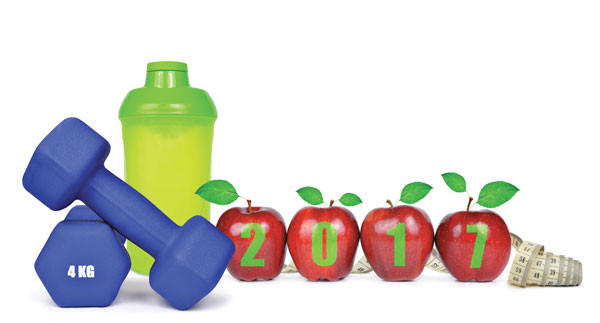
Counting steps is good — is combining steps and heart rate better?

Appendix pain: Could it be appendicitis?

Can saw palmetto treat an enlarged prostate?

How does Ozempic work? Understanding GLP-1s for diabetes, weight loss, and beyond

Zinc: What it does for the body, and the best food sources

Respiratory health harms often follow flooding: Taking these steps can help

Tips to leverage neuroplasticity to maintain cognitive fitness as you age

Can white noise really help you sleep better?

Celiac disease: Exploring four myths

What is prostatitis and how is it treated?
Exercise & Fitness Archive
Articles
Are heart attack triggers real?
A large international study of people around the world suggests that extreme physical exertion or emotional upset may be triggers for a heart attack.
Your New Year’s resolution: A gym membership?
What to consider when choosing a workout venue.
Image: vencavolrab/Thinkstock
If getting in shape tops your list of New Year's resolutions, you're in good company. During the first few months of the year, sign-ups at fitness centers and health clubs tend to trend upward. While these memberships can be costly, you may be able to find more affordable options or take advantage of discounts. But no matter what you pay, shelling out a monthly fee may encourage you to use the gym regularly to get your money's worth. If you do, your heart will likely reap the rewards: regular exercise is one of the best ways to boost cardiovascular health.
"The main advantage to joining a gym is to have access to a wide variety of exercise equipment," says Alex Petruska, a senior physical therapist at the Sports Medicine Center of Harvard-affiliated Massachusetts General Hospital. That includes machines for a cardiovascular workout, such as treadmills, elliptical trainers, stationary bikes, and stair steppers, as well as a variety of weight machines.
Are wristwatch-style heart rate monitors accurate?
Wristwatch-style fitness monitors use a sensor that detects blood flow through the skin to estimate a person’s heart rate. Some brands are more accurate that others, but none are as accurate as chest-strap monitors.
Working out while angry? Just don’t do it
Anger or emotional upset may double the risk of having a heart attack. Heavy physical exertion appears to have the same effect. And people who do intense exercise while they’re upset or mad may face three times the risk of heart attack.
Weight training may boost brain power
Weight training improved mental performance in a study of 100 men and women ages 55 through 86 who had mild cognitive impairment.
Stopping exercise for 10 days can decrease brain blood flow
Stopping exercise for 10 days can reduce brain blood flow by 20% to 30% in eight brain regions, including the hippocampus, which is responsible for learning and memory and is one of the first brain regions to shrink in Alzheimer’s disease.
Plank Pass
Harvard Fitness Expert Michele Stanten demonstrates how to use the medicine ball to add a little challenge to the plank position.
You should have some strength training under your belt before trying this workout. While you can modify the moves, it is still an advanced routine that combines both strength and power in many of the moves. This makes it a time-efficient workout, but also a more intense one. You may notice that your heart rate goes up more than during other strength workouts.
Strength to power
Harvard Fitness Expert Michele Stanten explains the difference between strength and power, and how to work out each of these attributes in many of the same exercises.
The Basic Workout is good for everyone. If you're new to strength training—or haven't been exercising for a month or more—this dumbbell and bodyweight routine is a great starting point. But even if you lift weights regularly, this workout can help by targeting muscles in new ways.
Kettlebell
Harvard Fitness Expert Michele Stanten shows the proper form for using the kettle bell to maximize the health benefits and minimize injuries.
Kettlebells supply resistance when you are strength training, which builds muscles. This not only makes you stronger, but also increases your muscles' endurance and strengthens your bones as well.
Ask the doctor: Are activity trackers worthwhile for weight loss?
If wearing an activity tracker results in more daily exercise but not a significant weight loss, it still provides health benefits.

Counting steps is good — is combining steps and heart rate better?

Appendix pain: Could it be appendicitis?

Can saw palmetto treat an enlarged prostate?

How does Ozempic work? Understanding GLP-1s for diabetes, weight loss, and beyond

Zinc: What it does for the body, and the best food sources

Respiratory health harms often follow flooding: Taking these steps can help

Tips to leverage neuroplasticity to maintain cognitive fitness as you age

Can white noise really help you sleep better?

Celiac disease: Exploring four myths

What is prostatitis and how is it treated?
Free Healthbeat Signup
Get the latest in health news delivered to your inbox!
Sign Up







